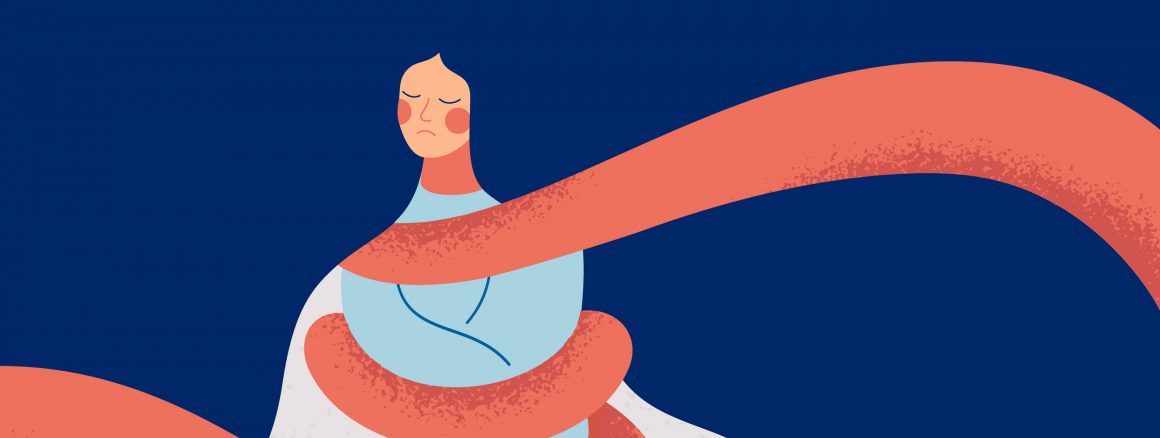BOSNIA’S NEW PORTALS ARE A FERTILE GROUND FOR HATE SPEECH AND SEXISM
August 3, 2021
In the countries of the Balkans, including Bosnia and Herzegovina, new media, most often portals, which provide no contact information or any information on the ownership or editorial structure on their pages are “emerging” every day. Clearly, their only mission is to make money, and for that they need clicks.
That is why they abound in unprofessional and unethical texts with sensationalist titles. One such portal is Genijalno.org, whose texts were analyzed by the platform Raskrinkavanje.ba. The specialty of this portal are texts related to women.
“This portal publishes articles about physical appearance and the dress-style of women, often age shaming women. The articles about physical appearance also contain disgusting descriptions and insulting phrases, such as mass shame, disgusted passers-by, torment… “, says Raskrinkavanje.
The BiH portal Genijalno.org published an article in which its author tried to answer the question “whether it is appropriate for women over 45 to wear torn jeans”. At the same time, the author concludes that it is this that distinguishes “a serious and an older lady” from younger girls when it comes to their attire”. These descriptions are supported by a photo gallery of women wearing torn jeans, and readers are allowed to comment on the topic. The comments are full of sexism and insults.
Journalist Brankica Smiljanić believes that the trend of stereotypical and irresponsible reporting on women is now even more pronounced than before because women themselves are beginning to realize how big a problem this is.
“Women in the Balkans are still seen through the prism of their beauty. They are believed not to be able to do the same jobs as men, and if someone steps out of this framework, they are portrayed as a mascot in some media, as if they are doing the impossible, something that is only meant for men. It is difficult to get out of those shackles, especially because some media make a living from it”, says Smiljanić.
She points out that the media comment on a woman, no matter of her position, in a different way than her male colleague.
“Description of women always starts with the look, and only at the bottom of the text there is an account of what she does”, says Smiljanić, recalling that only during the COVID-19 virus pandemic there were countless examples of commenting the expert’s hairstyle rather than what she was saying.
“It always comes down to how old a woman is, whether she is young or old, and how she came to that position in the first place. If she is not a beauty, then she is smart, and if she is beautiful, then she is certainly not that smart, and she probably has some connections”, says Smiljanić.
Stereotypes are an effective ally in media attempts to portray women in comparison to men. In such a media space, women feel insecure about making public appearances and being subjected to constant criticism. This can further contribute to having e.g. fewer women in politics. They are constantly being told that they don’t know it, that they don’t belong in politics, and that they should be doing jobs more appropriate for them. In such situations, women start believing that and give up.
The image of women painted by the media is, in fact, the image mirroring the general attitude towards women in Bosnia and Herzegovina and their social engagement. It is burdened by a patriarchal relationship in which stereotypes and prejudices still prevail, said longtime politician Besima Borić who is a member of the Social Democratic Party of BiH.
“The media rarely report on the benefits brought by women’s engagement to overall social life, the changes that women have brought by opening up various, often obscured, topics that have not been in the public eye … Usually, in the media we find a rather superficial approach to everything that women do, with few exceptions, of course”, says Borić.
Women’s success of stepping out from the private and entering into the public sphere is unforgiving, she highlighted.
“This is best seen in the images and topics that prevail in the media. These are images of botoxed beauties more often than successful female scientists, images of victims of sexual violence rather than images of women human rights activists and the like. Let alone women politicians. Comments about their appearance, hairstyle, clothes are much more present than the messages they send and the positions they take, which usually remain in the background. All this creates insecurity and discomfort, a pressure that often women cannot withstand, and they withdraw. That is often the very goal of the opponents of the deconstruction of patriarchal shackles and the release of women’s centuries-old captivity”, Borić argues.
According to the Press and Online Media Code of Bosnia and Herzegovina, “journalists shall refrain from making direct or indirect comments that place individuals in an unequal position or discriminate them based on their sex, gender, gender identity, gender expression and/or sexual orientation.”
Although the Code is morally binding on journalists and editors of print and online media, it is clear that many do not adhere to these basic professional standards. The media community and the media are trying to influence the irresponsible and continuous reporting, but this is becoming impossible because the battle for “Likes” is difficult to win and more and more media increasingly succumb to such pressures, believes Smiljanić.
“Indeed, some other mechanisms are needed, other than the conscience of the individual writing the text i.e., self-regulation, because, unfortunately, some people working in the media have no clue about the responsibility that this profession entails, she says.
Author: Jasna Fetahovic
Photo: Mary Long/ Shutterstock
